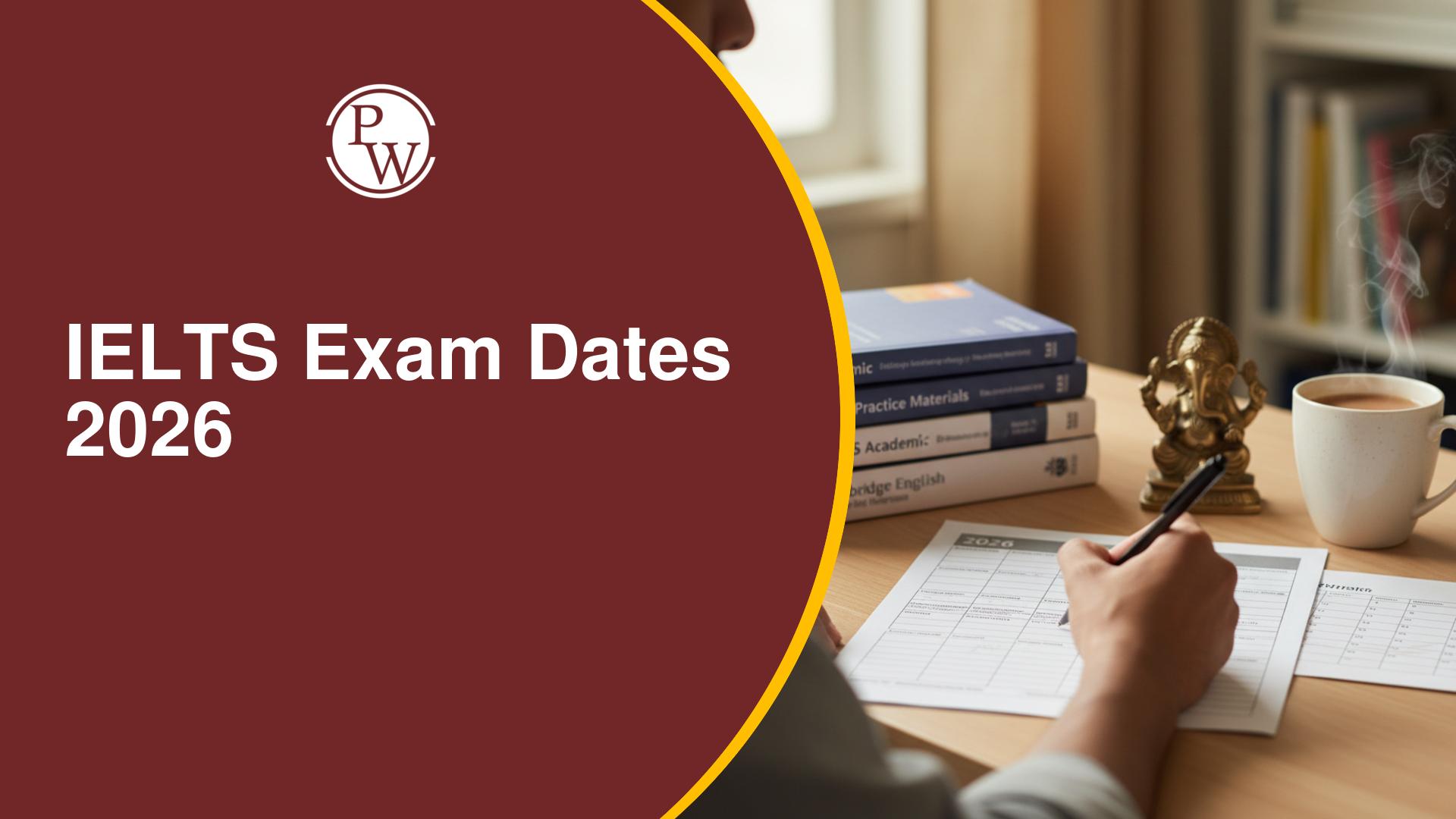
Stress of Workplace Reading Answers: “Stress of Workplace” is a common topic asked in the IELTS Reading Test. “Stress of Workplace” is a trending topic faced by most people in various industries and business places nowadays. In the IELTS Reading module , many reading passages are included on the topic “Stress of Workplace Reading Answers”.
The questions on reading passages are generally repeated and is one of the easiest sections in the IELTS test format . Therefore, practicing “Stress of Workplace Reading Answers” can improve the overall IELTS reading band score . This article covers samples of “Stress of Workplace Reading Answers” along with several frequently asked questions to help IELTS aspirants better understand the reading module.Free IELTS Reading Practice Tests, Cambridge Sample Test PDF
Stress of Workplace Reading Answers Passage
You should spend 20 minutes on Questions 1-14, which are based on the Reading Passage below.Stress of Workplace
1. How busy is too busy? For some it means having to miss the occasional long lunch; for others, it means missing lunch altogether. For a few, it is not being able to take a “sickie” once a month. Then there is a group of people for whom working every evening and weekend is normal, and frantic is the tempo of their lives. For most senior executives, workloads swing between extremely busy and frenzied. The vice-president of the management consultancy AT Kearney and its head of telecommunications for the Asia-Pacific region, Neil Plumridge, says his work weeks vary from a “manageable” 45 hours to 80 hours, but average 60 hours. 2. Three warning signs alert Plumridge about his workload: sleep, scheduling and family. He knows he has too much on when he gets less than six hours of sleep for three consecutive nights; when he is constantly having to reschedule appointments; “and the third one is on the family side”, says Plumridge, the father of a three-year-old daughter, and expecting a second child in October. “If I happen to miss a birthday or anniversary, I know things are out of control.” Being “too busy” is highly subjective. But for any individual, the perception of being too busy over a prolonged period can start showing up as stress: disturbed sleep, and declining mental and physical health. National workers’ compensation figures show stress causes the most lost time of any workplace injury. Employees suffering stress are off work an average of 16.6 weeks. The effects of stress are also expensive. Comcare, the Federal Government insurer, reports that in 2003-04, claim costs. Experts say the key to dealing with stress is not to focus on relief – a game of golf or a massage – but to reassess workloads. Neil Plumridge says he makes it a priority to work out what has to change; that might mean allocating extra resources to a job, allowing more time or changing expectations. The decision may take several days. He also relies on the advice of colleagues, saying his peers’ coach each other with business problems. “Just a fresh pair of eyes over an issue can help,” he says. 3. Executive stress is not confined to big organisations. Vanessa Stoykov has been running her own advertising and public relations business for seven years, specializing in work for financial and professional services firms. Evolution Media has grown so fast that it debuted on the BRW Fast 100 list of fastest-growing small enterprises last year – just after Stoykov had her first child. Stoykov thrives on the mental stimulation of running her own business. “Like everyone, I have the occasional day when I think my head’s going to blow off,” she says. Because of the growth phase, the business is in, Stoykov has to concentrate on short-term stress relief – weekends in the mountains, the occasional “mental health” day – rather than delegating more work. She says: “We’re hiring more people, but you need to train them, teach them about the culture and the clients, so it’s actually more work rather than less.” 4. Identify the causes: Jan Elsnera, Melbourne psychologist who specialises in executive coaching, says thriving on a demanding workload is typical of senior executives and other high-potential business people. She says there is no one-size-fits-all approach to stress: some people work best with high-adrenalin periods followed by quieter patches, while others thrive under sustained pressure. “We could take urine and blood hormonal measures and pass judgement of whether someone’s physiologically stressed or not,” she says. “But that’s not going to give us an indicator of what their experience of stress is, and what the emotional and cognitive impacts of stress are going to be.” 5. Elsner’s practice is informed by a movement known as positive psychology, a school of thought that argues “positive” experiences – feeling engaged, challenged, and that one is making a contribution to something meaningful – do not balance out negative ones such as stress; instead, they help people increase their resilience over time. Good stress, or positive experiences of being challenged and rewarded, is thus cumulative in the same way as bad stress. Elsner says many of the senior business people she coaches are relying more on regulating bad stress through methods such as meditation and yoga. She points to research showing that meditation can alter the biochemistry of the brain and actually help people “retrain” the way their brains and bodies react to stress. “Meditation and yoga enable you to shift the way that your brain reacts, so if you get proficient at it you’re in control.” 6. The Australian vice-president of AT Kearney, Neil Plumridge, says: “Often stress is caused by our setting unrealistic expectations of ourselves. I’ll promise a client I’ll do something tomorrow, and the [promise] another client the same thing, when I really know it’s not going to happen. I’ve put stress on myself when I could have said to the clients: ‘Why don’t I give that to you in 48 hours?’ The client doesn’t care.” Overcommitting is something people experience as an individual problem. We explain it as the result of procrastination or Parkinson’s law: that work expands to fill the time available. New research indicates that people may be hard-wired to do it. 7. A study in the February issue of the Journal of Experimental Psychology shows that people always believe they will be less busy in the future than now. This is a misapprehension, according to the authors of the report, Professor Gal Zauberman, of the University of North Carolina, and Professor John Lynch, of Duke University. “On average, an individual will be just as busy two weeks or a month from now as he or she is today. But that is not how it appears to be in everyday life,” they wrote. “People often make commitments long in advance that they would never make if the same commitments required immediate action. That is, they discount future time investments relatively steeply.” Why do we perceive a greater “surplus” of time in the future than in the present? The researchers suggest that people underestimate completion times for tasks stretching into the future and that they are bad at imagining the future competition for their time.Stress of Workplace Reading Answers Sample Questions
Instructions for Use:
|
Stress of Workplace Reading Answers: Matching Features (Questions 1-5)Match the following statements (1-5) with the people (A-E).
List of People: A. Dr. Johnson
B. Professor Green C. Ms. Clarke D. Mr. Evans E. Dr. LeeStatements:
1. This person believes technology will significantly change the way people work in the next decade. 2. This person has conducted research on environmental sustainability. 3. This person emphasizes the importance of mental health in the workplace. 4. This person argues that learning new skills continuously is essential for career growth. 5. This person has developed a program to support young entrepreneurs.Stress of Workplace Reading Answers: Multiple Choice Questions (Questions 6-8)6. According to the passage, what is the main reason companies are investing in employee training? A. To reduce employee turnover B. To keep up with technological advancements C. To improve workplace relationships D. To expand business operations internationally 7. What does the passage say about remote work trends? A. Most companies have stopped allowing remote work. B. Remote work is decreasing in popularity. C. Employees prefer remote work for better work-life balance. D. Remote work is only suitable for large corporations. 8. How does the passage describe the future of automation in industries? A. Automation will replace all human jobs. B. It will lead to the creation of new job opportunities. C. Only low-skilled workers will be affected by automation. D. Automation is unlikely to affect the job market.Choose the correct answer, A, B, C, or D.
Stress of Workplace Reading Answers: Summary Completion (Questions 9-14)Complete the summary using the words from the box. Note: There are more words than spaces, so you will not use them all.
| Word Box: Productivity, innovation, environment, skills, networking, flexibility, health, Communication |
| IELTS Exam Important Links | |
|---|---|
| IELTS Reading Band Score | IELTS Listening Band Score |
| IELTS Speaking Band Score | IELTS Writing Band Score |
Stress of Workplace Reading Answers With Explanations
Ans 1. This person believes technology will significantly change the way people work in the next decade. Answer : A. Dr. Johnson Explanation: Dr. Johnson is cited in the passage discussing how technological advancements are expected to transform industries and job roles. Ans 2. This person has conducted research on environmental sustainability. Answer : B. Professor Green Explanation: The passage mentions Professor Green’s extensive research on reducing environmental impact and promoting sustainability. Ans 3. This person emphasizes the importance of mental health in the workplace. Answer : C. Ms. Clarke Explanation: Ms. Clarke is referenced in the section about workplace well-being and the growing focus on mental health programs. Ans 4. This person argues that learning new skills continuously is essential for career growth. Answer : D. Mr. Evans Explanation: Mr. Evans highlights the necessity of ongoing skill development to keep pace with evolving job markets. Ans 5. This person has developed a program to support young entrepreneurs. Answer : E. Dr. Lee Explanation: Dr. Lee is mentioned for launching a mentorship initiative aimed at guiding young entrepreneurs. Ans 6. According to the passage, what is the main reason companies are investing in employee training? Answer : B. To keep up with technological advancements Explanation: The passage explains that companies are increasingly investing in training to ensure employees are equipped to handle new technologies. Ans 7. What does the passage say about remote work trends? Answer : C. Employees prefer remote work for better work-life balance. Explanation: The text notes that remote work has become popular due to its positive impact on work-life balance. Ans 8. How does the passage describe the future of automation in industries? Answer : B. It will lead to the creation of new job opportunities. Explanation: Automation is described as a driver for innovation, which in turn creates new roles and job markets. Summary Completion Companies are focusing on developing new 9. innovation to stay competitive. Employees are encouraged to enhance their 10. skills regularly to keep up with changing industry demands. Many businesses recognize that employee 11. health plays a crucial role in maintaining overall efficiency. In addition, fostering a positive work 12. environment is seen as beneficial for long-term success. More companies are also providing greater 13. flexibility in work schedules, which has been linked to increased 14. productivity . Also Read:- Should You Use All Capital Letters in the IELTS Listening and Reading Tests
- IELTS Reading Mistakes
- How to Improve IELTS Reading Score
- How to Manage Time in IELTS Reading
Guidance of PW IELTS
Physics Wallah offers a few popular online IELTS courses for all students. Follow the latest IELTS articles to better prepare for the exam.| IELTS Exam Other Related Links | |
|---|---|
| IELTS Registration | IELTS Eligibility Criteria |
| IELTS Exam Pattern | IELTS Syllabus |
| IELTS Exam Dates | IDP IELTS Test Centers |
Stress of Workplace Reading Answers FAQs
Q. How long is the IELTS Reading section?
Q. What types of questions are in the IELTS Reading test?
Q. Can I write on the IELTS Reading question paper?
Q. How is the IELTS Reading test scored?







